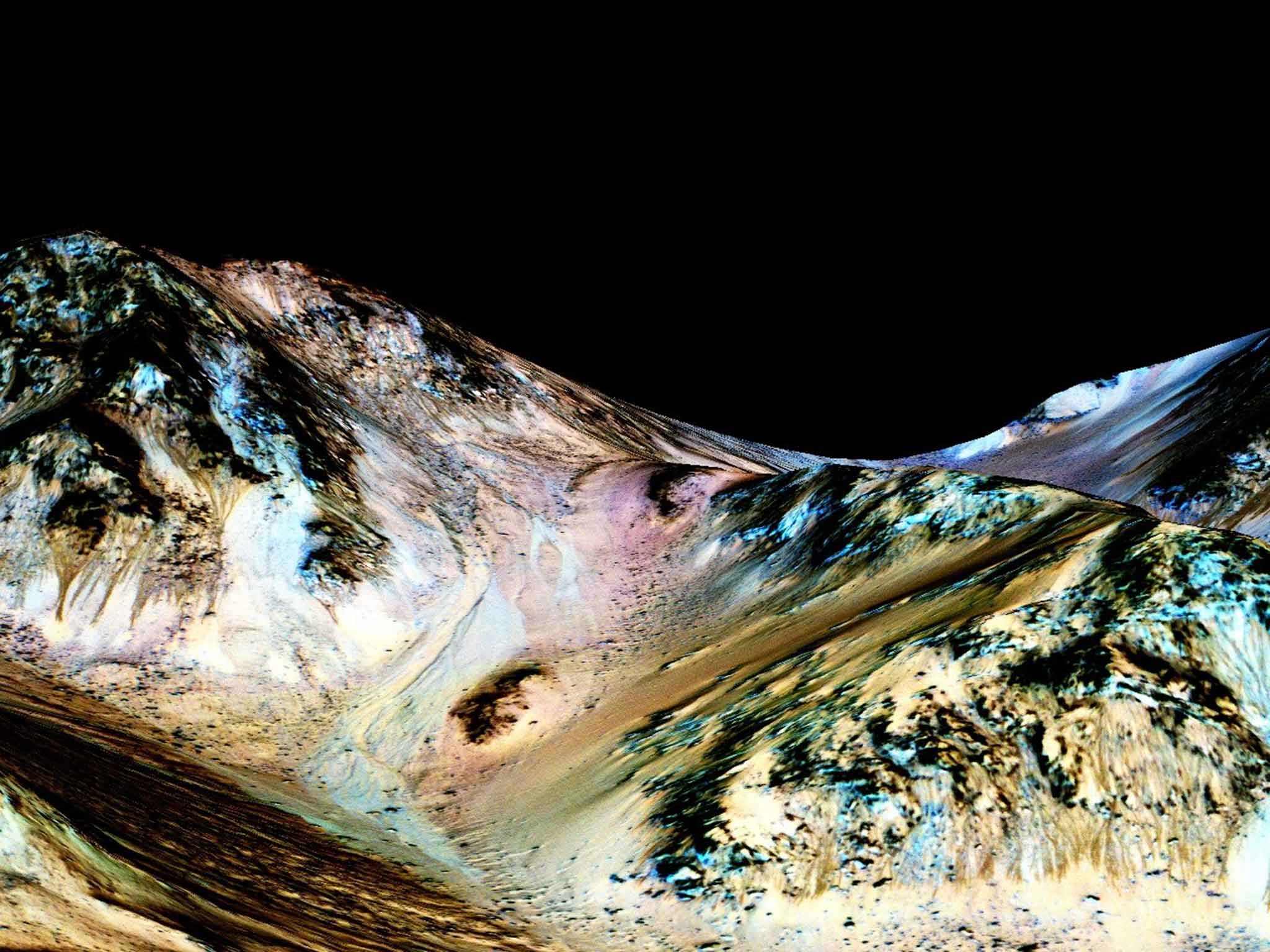Mars water announcement: Nasa's findings could indicate that there are habitable environments on Red Planet, experts say
‘On Earth, wherever we find water, we find life,’ a Mars researcher has said, including forms of life that can withstand very extreme conditions

Nasa’s discovery of water on Mars “points to environments that could potentially be habitable to certain kinds of bacteria”, according to an expert.
“On Earth, wherever we find water, we find life,” said Joe Michalski, a Mars researcher at the Natural History Museum London, who was not involved in the research. The finding could indicate that there are places on the planet that are habitable to certain kinds of bacteria — the most likely form of life that we would find on the planet.
Mars is a very difficult place for life. In the gullies that the water was found, it is thought to be impossible for anything to live — the radiation is so strong that it would likely kill anything.
But on other parts of the planet, conditions could be less difficult. And we have found life on Earth that can inhabit very difficult environments.
“These results provide strong evidence that salty water occasionally flows on the Martian surface, even today. We know from the study of extremophiles on Earth that life can not only survive, but thrive in conditions that are hyperarid, very saline or otherwise “extreme” in comparison to what is habitable to a human,” said Joe Michalski.
“In fact, on Earth, wherever we find water, we find life. That is why the discovery of water on Mars over the last 20 years is so exciting. We have found water in ice form, in permafrost, and in the structures of many types of minerals,” Dr Michalski said.
“This finding is yet another example of water on Mars, but a hugely important one because it points to environments that could potentially be habitable to certain kinds of bacteria, even today. In addition, the discovery of active geological and hydrological processes elsewhere in the Solar System underpins the point that these other worlds are actual places one could visit, where nature is happening every day.”
Nasa scientists supported the comments in its press conference held to report the findings. The discoveries “suggest that it would be possible to find life on Mars”, the agency’s scientists said.
Alfred McEwen, a planetary geologist at the University of Arizona and senior author on the study, said that he thinks the possibility of life somewhere on the interior of Mars is very high.
"It's very likely that there's life somewhere in the crust of Mars — microbes," he said at the Nasa press conference. "But it's where is it, how accessible is it, and maybe the first thing we can find is on the surface. But to me the possibility of finding life in the subsurface of Mars is very high."
Join our commenting forum
Join thought-provoking conversations, follow other Independent readers and see their replies
Comments